Blissam always understands that each customer has unique requirements, and we offer customization services to tailor our silicone resin paint to meet their specific needs. Our teams work closely with clients to develop customized solutions that provide them with a competitive advantage in their respective industries.
Silicone resin is an organic polymer with a main chain composed of - Si-O - and side chains containing organic groups. Due to its multiple active groups, it can undergo further crosslinking reactions, ultimately forming a three-dimensional structure cured product. This product has many excellent properties, such as resistance to high and low temperatures, weather aging, hydrophobicity and moisture resistance, high insulation strength, low dielectric loss, arc resistance, radiation resistance, etc. In addition, silicone resin can also be used for various applications. For example, it can be used as a heat-resistant and weather resistant anti-corrosion coating, metal protective coating, waterproof and moisture-proof coating in construction engineering, release agent, adhesive, and secondary processing into organic silicon plastic, used in electronics, electrical, and defense industries, as semiconductor packaging materials and insulation materials for electronic and electrical components.
about alkyl silicone resin, we have carefully prepared some relevant professional knowledge documents for you, {hope to provide some help to you who are interested in silicone resin paint


1alkyl silicone resin adhesives are a versatile and high-performance type of adhesive that offers a wide range of benefits. These adhesives are made from silicone polymers, making them resistant to high temperatures, chemicals, and UV radiation. They also have excellent electrical insulation properties, making them ideal for use in electronics manufacturing. In addition, silicone resin adhesives have a high adhesion strength and can bond well with a variety of substrates, including metal, plastic, and glass. This makes them suitable for a wide range of applications, including automotive, aerospace, and construction industries. With their unique properties and durability, silicone resin adhesives continue to unlock new possibilities for efficient and reliable bonding solutions.
2alkyl silicone resin products exhibit excellent chemical resistance, making them very popular in a variety of industrial environments. They can withstand exposure to acids, solvents and other harsh chemicals without degrading, making them a reliable choice for use in environments where chemical exposure is a concern.
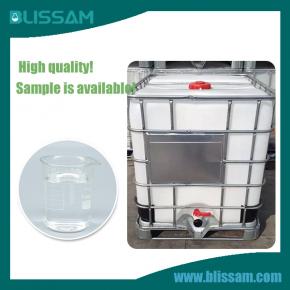
Silicone resin is a versatile material with a wide range of applications. As its name suggests, it is made primarily from silicone, a synthetic compound known for its heat resistance and flexibility. From adhesives to electrical insulation, silicone resin has become an essential ingredient in various industries.In the manufacturing sector, silicone resin is widely used as an adhesive due to its strong bonding properties. It can securely bind materials such as ceramics, metals, and plastics, making it a popular choice for construction, automotive, and electronics industries.

Silicone resin is a synthetic material that has numerous applications due to its unique properties. One of the main benefits of using silicone resin is its exceptional heat and chemical resistance. This material can withstand high temperatures without melting or degrading, making it suitable for use in a variety of industries, such as aerospace, automotive, and construction.In addition to its heat resistance, silicone resin is also highly resistant to chemicals, including acids, bases, and solvents. This makes it an ideal choice for applications that involve contact with harsh substances, such as industrial coatings, sealants, and adhesives.
Silicone Resin--An Ultimate FAQ Guide.
1.What is Silicone Resin?
2.Does Silicone Resin have optical properties?
3.Is Silicone Resin affected by humid environments?
4.Can Silicone Resin be used to make gap fillers?
5.About Silicone Resin quality system
6.Is Silicone Resin a hazardous substance?
7.What is the texture of Silicone Resin?
8.Is Silicone Resin fire-resistant?
9.About Silicone Resin production capacity
10.About Silicone Resin delivery date
11.Can Silicone Resin be dyed?
12.About Silicone Resin R&D capabilities
13.About Silicone Resin overseas warehouse
14.About Silicone Resin inventory
15.About Silicone Resin raw materials
16.Does Silicone Resin have good adhesion properties?
17.Is Silicone Resin harmful to the human body?
18.About the scale of Silicone Resin factory
19.Can Silicone Resin be used as coating?
20.What effect does Silicone Resin have on temperature changes?
21.About the development history of Silicone Resin factory
1.What is Silicone Resin?
Silicone resin is a thermosetting polysiloxane polymer with a highly cross-linked structure, which combines the dual characteristics of organic resin and inorganic materials. It has unique physical and chemical properties, excellent electrical insulation properties, temperature resistance, and waterproof effects. Silicone resin has better weather resistance than ordinary organic resins. Therefore, it is an ideal material for the coating of temperature resistant, heat resistant, and moisture resistant protective surfaces.
2.Does Silicone Resin have optical properties?
Organic silicone resin is a very important optical material with excellent transparency, heat resistance, and chemical stability. It is composed of organic silicon molecules and polymer matrices, and can be used to prepare various optical components, such as lenses, optical filters, optical fibers, etc. It is widely used in optical communication, optical instruments, and optical storage fields. In addition, the refractive index of organic silicon resin can be adjusted by changing its chemical composition and formula, making it suitable for different optical device designs and preparations. It has low dispersion performance and can meet the propagation needs of different wavelengths of light, reducing color differences in optical devices. At the same time, its optical transparency is excellent, which can minimize the propagation loss of light inside the material and ensure the transmission efficiency of optical devices.
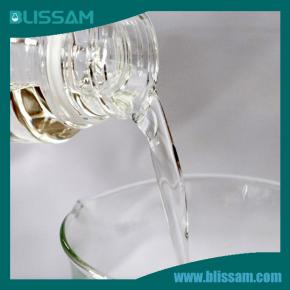
3.Is Silicone Resin affected by humid environments?
In the construction industry, silicone resin is often used as a building sealant. Due to its excellent weather resistance and adhesion, it can effectively prevent water and air infiltration, ensuring the sealing and durability of buildings. Organic silicone resin sealant is widely used in exterior walls, windows, and doors of buildings.
4.Can Silicone Resin be used to make gap fillers?
The high elasticity and wear resistance of organic silicone resin make it a good filling material. Its application areas include: - filling of cables and cables - protective gaskets for electronic components - sealing strips for aircraft and cars
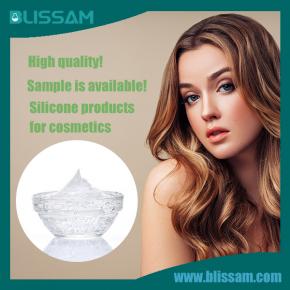
5.About Silicone Resin quality system
Ensuring product quality is a key issue in the production process of chemical products. We will take the following measures: 1. Establish reasonable production processes and operating procedures: Production processes and operating procedures should undergo scientific research and verification to ensure the stability and controllability of the production process. The operating procedures should specify the requirements for the selection and maintenance of production equipment, the requirements for raw material batching and mixing, and the control requirements for processing conditions. 2. Strict control of production environment: The production environment of chemical products has a significant impact on product quality, so it is necessary to strictly control the production environment, including parameters such as temperature, humidity, pressure, impurities, etc. 3. Establish an effective quality management system: Enterprises should establish a comprehensive quality management system, clarify product quality standards, testing methods, quality control processes, etc., and comprehensively monitor the production process to promptly identify and solve problems. 4. Strengthen raw material quality control: The quality of raw materials in chemical products directly affects product performance and stability, so strict quality control of raw materials is necessary, including supplier selection, raw material inspection, storage and use, and other links. 5. Pay attention to employee training and quality awareness education: Employees are an important factor in the production process. Enterprises should pay attention to employee training and quality awareness education, improve employees' professional skills and quality awareness, and ensure stability and product quality in the production process. 6. Reasonable use of additives and additives: In the production process of chemical products, the reasonable use of additives and additives can improve product performance and stabilize product quality, but attention should be paid to the dosage and ratio to avoid adverse effects on the product. 7. Establish a product quality inspection and feedback mechanism: Enterprises should establish a product quality inspection and feedback mechanism to conduct spot checks or full inspections on the produced products to ensure that they meet quality standards. At the same time, timely handling and improvement should be carried out on the quality issues that have been feedback. In short, ensuring the quality of chemical products requires starting from multiple aspects, including production processes, environmental control, raw material quality, employee training, additive use, quality testing, and feedback mechanisms. Only by comprehensively considering and taking corresponding measures can the quality and stability of chemical products be ensured.
6.Is Silicone Resin a hazardous substance?
Silicone resin is a widely used material in various industries due to its excellent thermal, electrical, and chemical properties. However, there have been concerns about its potential hazardous effects on human health and the environment. Silicone resin itself is not considered a hazardous substance, but some of its components, such as catalysts, may pose a risk during production and disposal. Additionally, high temperatures and exposure to moisture can release toxic substances from silicone resin. Therefore, it is important to handle and dispose of silicone resin properly to avoid any potential hazards. With proper precautions and regulations in place, silicone resin can continue to be a valuable material in various applications.
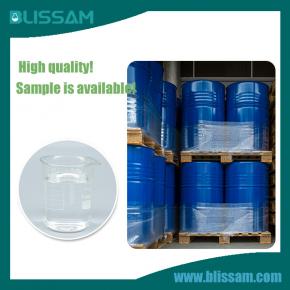
7.What is the texture of Silicone Resin?
Hand feel is a very important indicator for measuring the quality of finished leather. The use of hand feel agents in the top coating of leather can greatly improve the comfort, aesthetics, and added value of leather. Among the hand feeling agents, silicone hand feeling agents have the best effect, the most varieties, the widest application, and the fastest development. The leather treated with organic silicon tactile agent can not only maintain elasticity, fullness, breathability, and hygiene performance, but also improve the tactile feel and softness. After finishing, the drying speed is fast, and it is not easy to become hard or brittle after drying. The surface of the leather has good stability to water and chemicals.
8.Is Silicone Resin fire-resistant?
Yes,Organic silicone resin has significant advantages in resistance to open flame, firstly, it has good high-temperature resistance. Due to the presence of silicon oxygen bonds, organic silicone resin can maintain stability and combustion resistance in high-temperature environments, without producing toxic gases, making it an ideal refractory material.
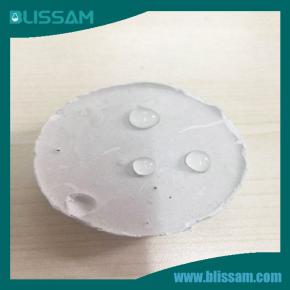
9.About Silicone Resin production capacity
Silicone resin is a versatile material commonly used in various industries such as electronics, automotive, and construction. Its unique properties, such as heat and chemical resistance, make it a popular choice for coatings, adhesives, and sealants. With the increasing demand for silicone resin, many companies have invested in the production of this material. The production capacity for silicone resin continues to grow as companies expand their facilities and improve their manufacturing processes. This allows for a steady supply of high-quality silicone resin to meet the growing market demand. The advancements in technology and research have also led to the development of new and improved formulations, further increasing the production capacity of silicone resin. As the industry continues to evolve, the production capacity for silicone resin is expected to increase, allowing for even more innovative uses of this versatile material.
10.About Silicone Resin delivery date
Our company is committed to providing efficient and timely delivery of Silicone Resin products. We understand the importance of meeting our customers' expectations and strive to deliver high-quality products on the promised delivery date. Our production process is streamlined to ensure fast and reliable shipping, and we work closely with our suppliers to maintain a consistent supply of raw materials. Rest assured, our team is dedicated to delivering your Silicone Resin order on time, every time. Thank you for choosing us as your trusted supplier.

11.Can Silicone Resin be dyed?
Yes, silicone resin can be dyed. Silicone resin is a versatile polymer that can easily be pigmented with dyes and pigments to achieve different colors. The dyes can be added at different stages of the curing process, allowing for a variety of color effects and designs. The dyeing process is simple and can be done by mixing the desired dye with the uncured silicone resin, or by painting the cured resin with a pigment-based dye. This makes silicone resin a popular choice for various applications such as crafting, jewelry making, and industrial use. With the ability to be dyed, silicone resin allows for endless possibilities in creating vibrant and unique pieces.
12.About Silicone Resin R&D capabilities
We have collaborated with many research institutions to carry out many innovative projects.

13.About Silicone Resin overseas warehouse
Silicone resin overseas warehouse is a specialized storage and distribution center for silicone resin products. It serves as a facility for manufacturers to store their products and for buyers to conveniently access and purchase them. Located in various countries around the world, these warehouses help to reduce shipping costs and delivery times, making it easier for businesses and individuals to access top-quality silicone resin materials. By providing efficient logistics and distribution services, these overseas warehouses play a crucial role in promoting the global trade of silicone resin products.
14.About Silicone Resin inventory
We have enough inventory for our customers.
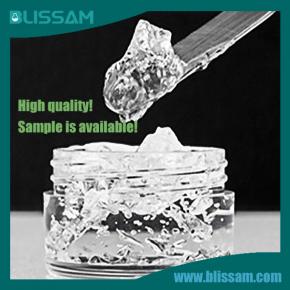
15.About Silicone Resin raw materials
1. Supplier audit: Strictly audit suppliers, including their qualification evaluation, quality management system evaluation, production equipment and process evaluation, to ensure stable and reliable raw material quality of suppliers. 2. Raw material inspection: Conduct a comprehensive inspection of all raw materials entering chemical production to ensure stable quality and compliance with product manufacturing requirements. 3. Quality Record and Traceability: Establish a comprehensive quality record system to record the quality information of each batch of chemical materials, including supplier information, inspection records, and quality issue handling records. At the same time, ensure the traceability of materials, so that the source and quality of materials can be traced when needed. 4. Intermediate inspection: Regularly inspect intermediate products during the production process to ensure that the quality of each link meets the requirements. 5. Final product inspection: Conduct a comprehensive inspection of the final product, including appearance, performance indicators, safety performance, etc., to ensure that the product quality meets national standards and user requirements. 6. Continuous improvement: By continuously monitoring and evaluating the production process and raw material quality, potential problems are identified and improvement measures are taken to improve production efficiency and product quality.
16.Does Silicone Resin have good adhesion properties?
Among the existing heat-resistant adhesives, organic silicone adhesive is one of the excellent varieties. The types of organic silicone adhesive include high-temperature resistant adhesive, heat-resistant sealant, high-temperature strain resistant adhesive, and heat-resistant pressure sensitive adhesive. Due to the relatively stable molecular structure of Si-O-Si, similar to inorganic salts, in organic silicon condensates, both liquid, solid, and elastic polymers have high heat resistance and chemical stability, excellent electrical insulation, and excellent hydrophobicity.

17.Is Silicone Resin harmful to the human body?
Organic silicone resin is a type of resin formed by copolymerization of silicone based monomers and organic monomers, commonly used as coatings, sealants, waterproofing agents, cleaning agents, disinfectants, cosmetics, industrial products, etc. Generally speaking, silicone resins are safe, but there are also some silicone resins that are toxic or carcinogenic. Specifically, the toxicity of organic silicone resin mainly depends on the silicon based monomers and organic monomers involved. If the silicon based monomers are low toxic substances such as ammonium disilicate and sodium disilicate, the toxicity of organic silicone resin is relatively low. But if the silicone monomer is toxic substances such as lead disilicate, the toxicity of organic silicone resin is higher. In addition, organic monomers in organic silicone resins may also have toxicity, such as benzene silicone oil, polyoxyethylene, etc. The current research results on the carcinogenicity of silicone resins are not uniform. Some studies have shown that organic silicone resins have carcinogenic potential, which may lead to liver tumors and lung cancer. However, some studies have shown that silicone resins do not have carcinogenic activity.
18.About the scale of Silicone Resin factory
The Silicone Resin factory is a leading manufacturer of silicone products, with a large-scale production capacity. With cutting-edge technology and world-class facilities, the factory is capable of producing high-quality silicone resin in large quantities. The factory's scale allows for efficient and cost-effective production, meeting the demands of diverse industries such as electronics, construction, and automotive. As a pioneer in the industry, the Silicone Resin factory has earned a reputation for its consistent quality and reliability, making it a trusted partner for businesses around the world.
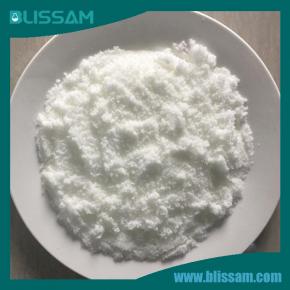
19.Can Silicone Resin be used as coating?
Yes, Organic silicone resin is mainly used in high-temperature coatings, wear-resistant coatings, anti stick coatings, and waterproof coatings.
20.What effect does Silicone Resin have on temperature changes?
The temperature resistance of organic silicone resin mainly depends on the strength of the silicon oxygen bonds in its molecular structure. Silicon oxygen bonds are a strong chemical bond with a bond energy of up to 300 kcal/mol (approximately 429.8KJ/mol). This means that when the silicone resin is heated, the silicon oxygen bond will be destroyed, releasing a large amount of heat. However, as the temperature increases, the movement of molecular chains in organic silicone resin will also accelerate, leading to more cleavage of silicon oxygen bonds. In this way, the heat resistance of the silicone resin will gradually decrease. According to experimental data, the melting point of ordinary silicone resin is between 200 and 250 ° C, and the ignition point is between 180 and 230 ° C. These data indicate that organic silicone resin is stable at room temperature, but once subjected to high temperatures, it will undergo decomposition, melting, or combustion. However, for specially modified silicone resins, their temperature resistance can be significantly improved. For example, organic silicone resin modified with alumina can have a temperature resistance of 300-400 ° C; The temperature resistance of organic silicone resin reinforced with carbon fibers can reach over 600 ° C; The silicone resin modified with fluoride has a temperature resistance of over 1000 ° C.
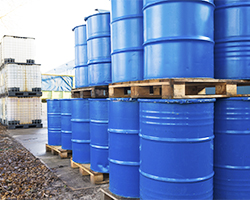
21.About the development history of Silicone Resin factory
Our company has over 10 years of experience in the organic silicon industry.
Tag:silicone modified polyester resin,silicone modified acrylic resin,methyl silicone resin,rc-21 silicone resin,silicone resin binder
Contact:
Phone: +86-15957191858
E-mail: info@blissam.com
Whatsapp:+8615957191858
Add: A647, No. 9, Xiyuan Road, Xihu District, Hangzhou, Zhejiang, China
We chat
